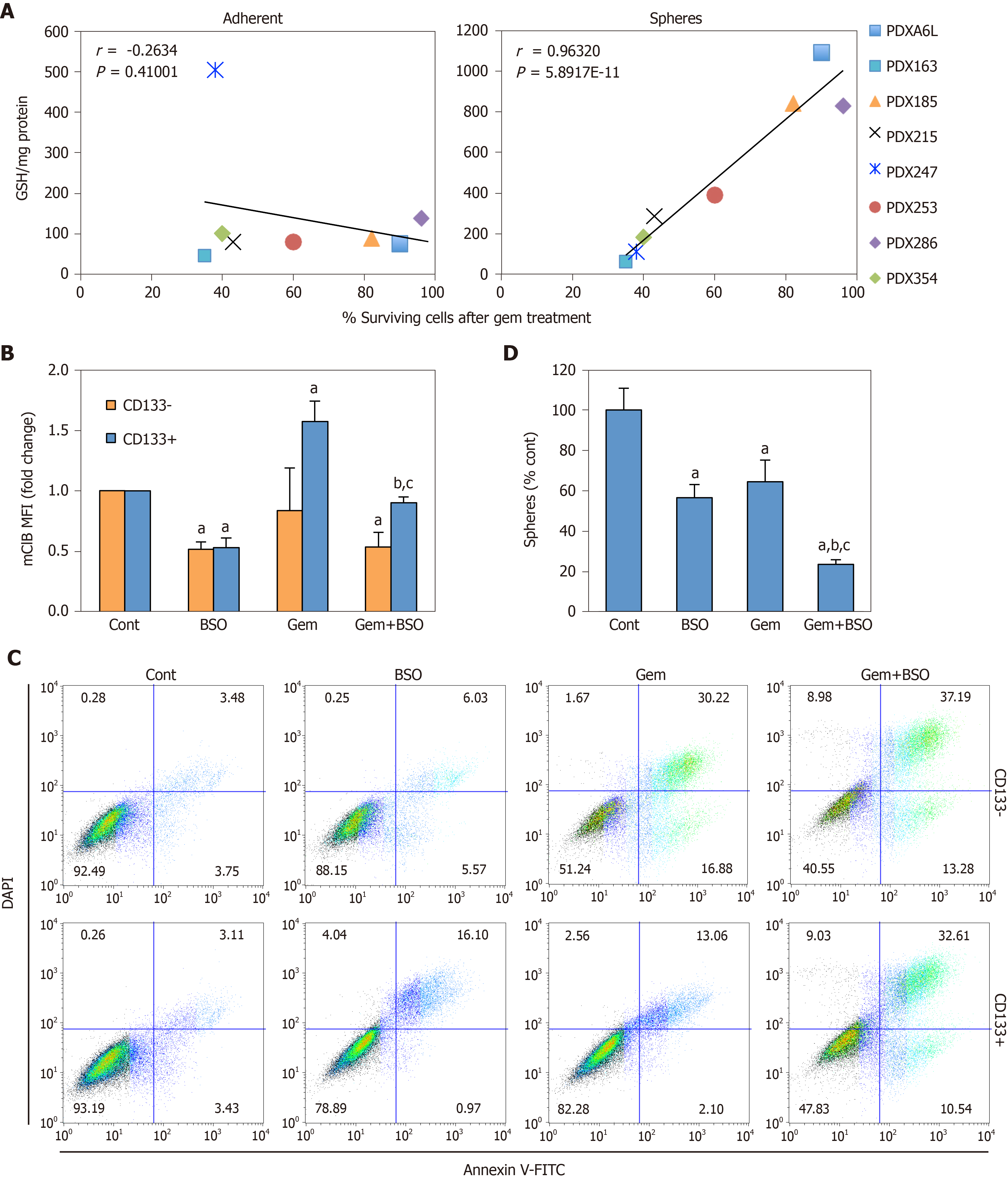Copyright
©The Author(s) 2020.
World J Stem Cells. Nov 26, 2020; 12(11): 1410-1428
Published online Nov 26, 2020. doi: 10.4252/wjsc.v12.i11.1410
Published online Nov 26, 2020. doi: 10.4252/wjsc.v12.i11.1410
Figure 6 Depletion of glutathione (GSH) content in cancer stem cells enhances response to Gemcitabine.
A: Correlation of the absolute glutathione (GSH) content per milligram of protein in lysates from adherent (left panel) or sphere (right panel) cultures vs the percentage of surviving cells following gemcitabine treatment (300 nM, 48 h). Values for Pearson´s r and corresponding P values are shown; B-D: Patient-derived xenograft 354 cells were treated with 100 µmol/L buthionine-sulfoximine (BSO) alone or in combination with 1 µmol/L Gemcitabine; B: mClB staining for GSH content in CD133– vs CD133+ cells after 48 h of treatment; C: Representative flow cytometry plots for Annexin V/DAPI staining for samples shown in B; D: Number of spheres following 7 d of treatment. Data in B and D are shown as mean fold change or mean percentage ± SE, with untreated conditions (Cont) set as 1.0 or 100%, respectively. aP < 0.001 vs Cont; bP < 0.001 vs BSO; cP < 0.001 vs Gemcitabine. GSH: Glutathione content in its reduced form; PDX: Patient-derived xenograft; MFI: Mean fluorescence intensities; BSO: Buthionine-sulfoximine.
- Citation: Jagust P, Alcalá S, Sainz Jr B, Heeschen C, Sancho P. Glutathione metabolism is essential for self-renewal and chemoresistance of pancreatic cancer stem cells. World J Stem Cells 2020; 12(11): 1410-1428
- URL: https://www.wjgnet.com/1948-0210/full/v12/i11/1410.htm
- DOI: https://dx.doi.org/10.4252/wjsc.v12.i11.1410









